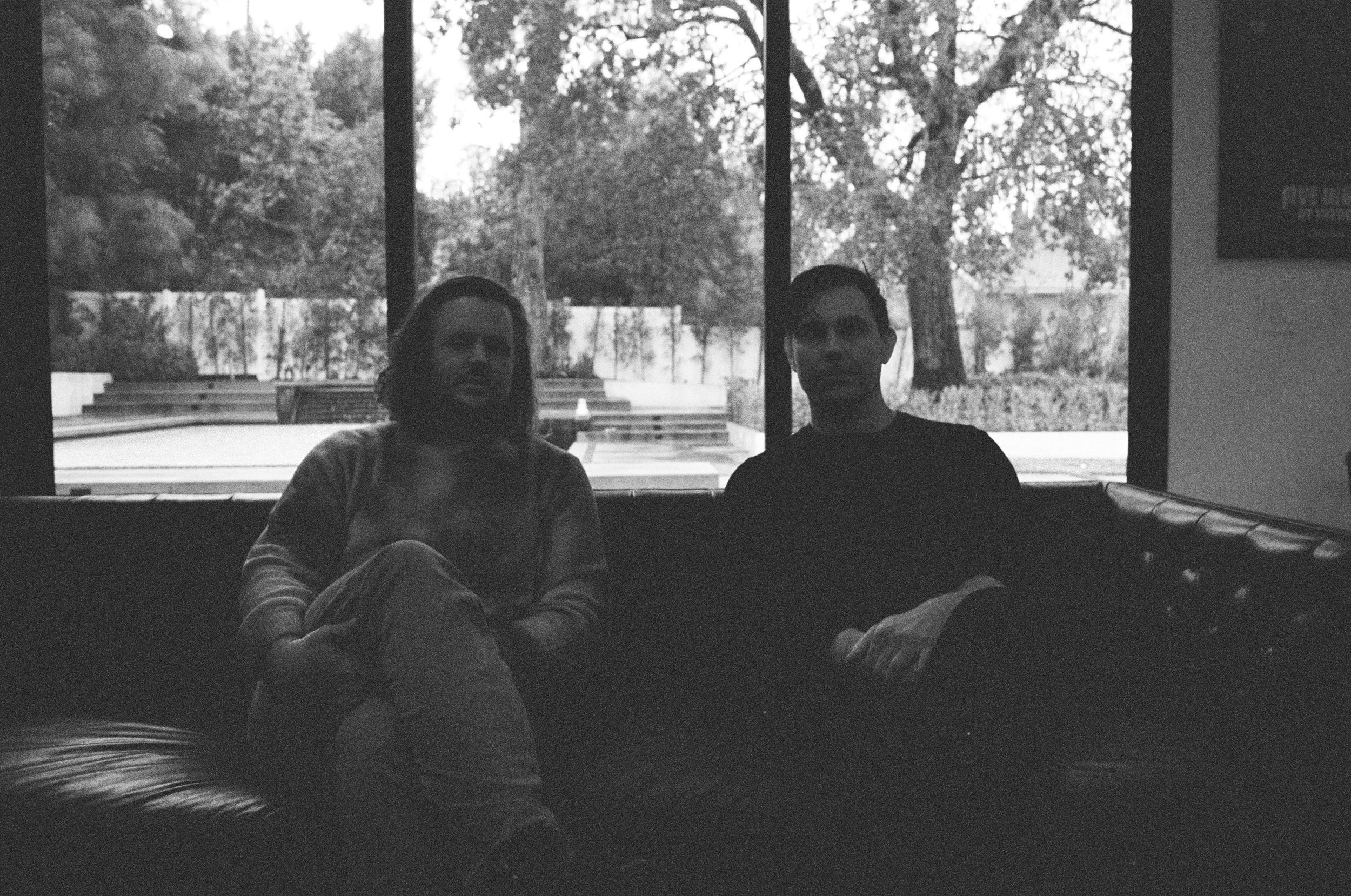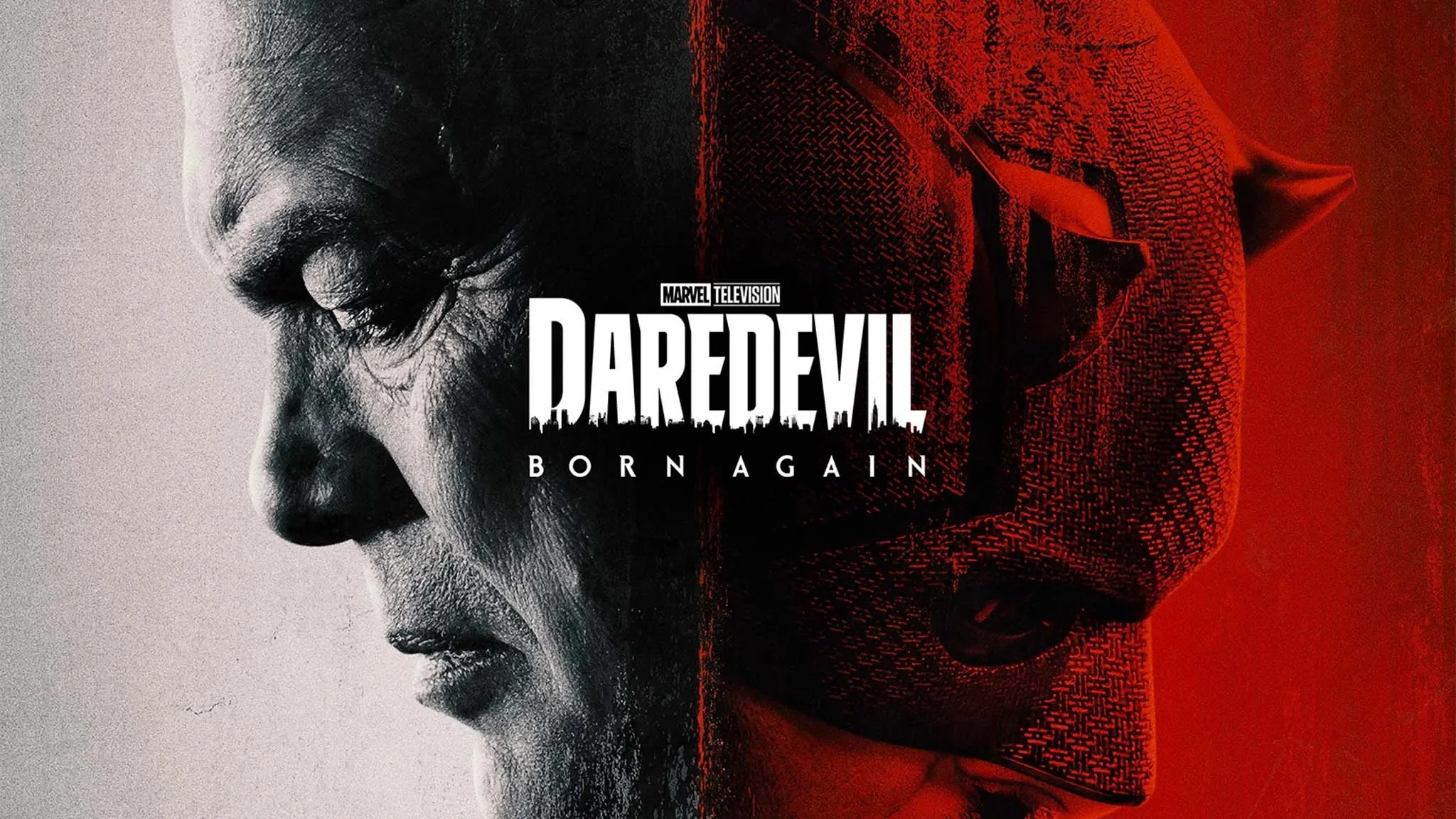ISSUE 07
The Newton Brothers on Music, Obsession, and the Stories That Unite Them
Words by Harry Levin
The Newton Brothers, a highly acclaimed duo of film and television composers, are not related by blood. Comprised of John Andrew Grush and Taylor Newton Stewart, they have forged an unbreakable bond through their shared creative passion, relentless exploration, and insatiable curiosity. Despite not being actual brothers, their partnership is built on a deep connection that fuels their innovative and captivating scores.
After 15 years of working together, they approach their career as artists, making music for the joy of it just as much as supporting visual media — Never bound to a style of music, an instrumental palette, or a genre.
They have written for many projects in the thriller and horror realm, having developed a strong working partnership with writer/director Mike Flanagan. They’ve scored 11 of his productions since 2014, including Doctor Sleep, Midnight Mass, and The Life of Chuck.

But they have also carved a strong niche in the comic book world. They just scored X-Men 97, Disney’s remake of the 1992 animated series, X-Men, and Daredevil: Born Again, the Disney+ continuation of the adult Netflix comic book series, Daredevil.
Both Grush and Stewart grew up exploring the vast worlds of comic books. Grush entered that realm via the two-mooned Earth-like planet of Elfquest, whereas Stewart was reading the classics like Spider-Man and Superman when he was a kid.

However, they both had a defining moment in their careers when they heard the epic flourish in the theme for the animated series X-Men.
“The music was developing separately while I was being very interested in comic books. The two for me didn’t really come together until X-Men the animated series,” Grush says.
“I would always go see my dad on Saturday mornings. I’d watch Saturday morning cartoons, and that led me to the animated series for X-Men. I used to get pumped up. That theme song would come, and I’d get all excited,” Stewart continues.
30 years later, they are delivering that same excitement to a new generation of youngsters by composing the soundtrack for X-Men 97. As longstanding comic book fans, they love these characters and stories, and it’s thrilling to see them transition to the largest scale possible. Even if a movie or TV show isn’t a smash hit, they appreciate how far the art form has come.
“I hear all these kids complaining, ‘That’s not what his suit looks like!’ You have no idea how lucky you are to be watching this. Remember the old Hulk? What the special effects were? They just changed actors!” Stewart says, sending Grush into a laughing fit. “Bringing comic books to cinema is such a treat.”
When Grush collects himself, he says, “I’m going to laugh about that for a month,” then he builds upon Stewart’s point: “If you take the idea of what you’re seeing on the page — the colours, internal dialogue, blunt action — music is the connection to the feelings and the emotions that you pull from the comic books.”

As different as X-Men 97 may seem compared to the suspense and graphic violence of their horror works, Grush and Stewart can compose music from the feelings and emotions of the true core element: the story.
“You’re dealing with characters that are going through something and how they relate to their environment or other characters,” Stewart says.
“It’s strangely similar. Stories hold everything together,” Grush adds. “The vivid quality of what your mind does to stories is so engaging. It’s the same thing that happens when I’m sitting at the piano or I pick up the guitar.”
Of course, genres exist through shared elements, so there are general techniques Grush and Stewart associate with them. For example, in horror and thrillers, too much music can take focus away from the shocking moment the story is building towards or even come across as cheesy.
On the other hand, comic films are built around notable characters who usually have their own consistent theme reworked throughout. Plus, these films and shows are known for epic fight scenes with little to no dialogue. This is where Grush and Stewart can write grand musical suites.
“We become a little bit obsessed with finding what it is we want for the project.”
Daredevil: Born Again was an interesting project for Grush and Stewart because its story crosses into both of these worlds. It is based on a comic book, but it is intended for mature audiences with dark themes, much like a psychological thriller.
In the series premiere, they had a chance to demonstrate their expertise in moving through different moods as they composed for a four-minute unbroken tracking shot. Daredevil is fighting Bullseye after he shoots Foggy. The camera moves from the intense hand-to-hand combat to Foggy lying on the sidewalk, fighting for his life, and the music follows these beats precisely. From tense strings and active percussion to sombre choral layers.
They worked on that music for months before they presented ideas to Marvel, in a phase they describe as “obsession.”
“We become a little bit obsessed with finding what it is we want for the project,” Stewart says, and that phase usually comes when they are initially working on the score. Experimenting with different ideas. Getting feedback from each other. Writing music that excites them.
For this particular score, a few elements that excited them were unconventional orchestra placements paired with specific panning to create a feeling of motion within the music. To capture Daredevil’s catholic faith, they used a full choir and a lot of organ (production constraints prevented them from recording an authentic church organ, but they’re hoping they can do it for season two).
“We’re coming to the table with things that we think work well,” Grush adds, and Marvel clearly agreed because, after the long and layered process of getting a television program ready to air, much of the final score is built on their original concepts. “Being able to play in that sandbox is very effective.”

Grush and Stewart were interested in comics and music when they were little kids playing in sandboxes. Now, they’re writing music for major comic book productions.
“When you watch films at a young age, you’re in awe of stuff, and you try to figure out what it is that’s making me feel like that. For me, it always came back to the music,” Stewart continues. “Even Predator. I was like, ‘What is this music? It’s so awesome.’”
“We both have this sincere curiosity about everything from funny Instagram videos to interesting sounds and new music,” Grush says. “That’s why Taylor and I have gotten along so long.”
The way they get along, it’s more than collaborators. More than friends. They’re brothers who are thrilled to discuss what they love. We conversed for a while after there were no more interview questions left, and when it was time to sign off, they were sure to offer me an invite for a pint the next time they made it to London.
No matter where their career takes them next, regardless of genre or scale or any other external factor, that bond will remain, and it will inform every part of the music.






